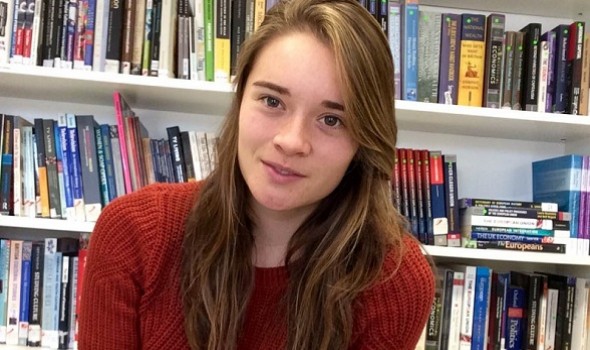These first-hand encounters with the reality of immigration alter one’s perspective indefinitely
These first-hand encounters with the reality of immigration alter one’s perspective indefinitely

“Were they vetted?” my father asked.
“They fled their country to save their lives,” I replied.
“How do we know they won’t kill anyone?”
“To have refugee status means that they went through extensive background checks,” I replied.
“Were they part of Al-Qaeda?” he asked.
“They were running from Al-Qaeda.”
The phone goes quiet.
My father is the most gentle man I’ve ever met. A gentleman of the rarest quality, softly spoken, unassuming. When you least expect it, he slips in a kind comment that melts your heart. However, like many, on the subject of immigration I have been taken aback by gross generalisations assumed as truth.
Immigration is a complicated, confused subject. Laws change in an instant, categories blur, invisible lines of geography and paperwork are crossed and recrossed.
Last fall I myself was an immigrant, a United States citizen in the London working with Migrant Voice. Now, ‘at home’ in Berkeley, California, I feel more separated than ever from Europe’s immigration crisis. The word ‘immigrant’ here has a very different connotation. Arguably, we, too, are experiencing a crisis: a silent one, albeit, a crisis cloaked in the term “illegal”. However, I learned first-hand what the word ‘refugee’ meant in The Jungle.
Everyone seems to have an opinion on the ‘immigration issue’ and nobody is afraid to express their own, despite a general ignorance as to the reality of immigrating. Do people know how much paperwork and proofing is required to qualify as a refugee? Do people know what has gone on in the life of a person fleeing their homeland? I don’t think so. The trouble is, I don’t think most people really want to know the truthful answer to either question. The facts at our fingertips.
It’s taken me three months now since visiting the refugee camp in Calais to return to writing about it. Now, only spurred into writing by the callousness of my father, who, of all people, I expected to approach the topic with sensitivity.
I can’t get the people I met in Calais out of my head. I can’t feel at ease here, in my comfortable apartment. Compassionate friends, friends who agree with my politics, look at me differently now, say I’ve “gotten political”, perhaps less fun. They hear the tension in my throat . It is not intentional, this sharpness, this frustration. During my time in ‘The Jungle’, I spoke with wonderful people, saw a sliver of life so foreign from my own and lost faith in the way things are run here.
I want to go back. I want to go back, I want to go back, please. Being involved in delivering comfort to those who are directly affected by displacement makes more sense to me than living with the self-inflicted blindness that now enables my comfortable life in a comfortable apartment.
A buddhist nun warned me before I left England for France: “Seeing the camps will change the direction of your life,” she said, smiling pleasantly, lightly. In doing so, she offered me the option of avoiding the camp entirely, the option of staying comfortable.
I thought I would cry when I saw the camp. Many people warned me. I thought it would be depressing, full of hungry, sad people. I arrived to smiles: men, boys, and a little toddler, a beautiful girl, on her dad’s shoulders. They wore flip flops and tattered shorts as it rained and the wind whipped and I felt ridiculous, shivering in four layers of wool. The community that those individuals built together out of so little - out of sand, plastic tarps, and discarded produce boxes - affirmed how resilient, optimistic, and joyous we humans can be together. The camp rang with laughter and the rolling soccer balls over the gravel. It only smelled like tear gas sometimes, when the police came.
The memory fits nowhere into the rest of my life. The hardest part was not the being there in it, but the returning to my ‘normal’ life. I’m not surprised that the French government refused to acknowledge the 10,000 people living on the sands of an industrial waste dump as anything but “illegal” and had it destroyed. It simply does not fit with how we, as citizens of first-world countries, conceive ourselves. So, we try to ignore it. We focus on the deadline tomorrow and turn a blind eye to the immigrant detention centers growing in our own backyards.
Burying our heads in the sand doesn’t dissipate the crowd of our tired poor, our huddled masses yearning on the outer limits of that wall we’re building between the US and Mexico, and us and the world. We must confront ourselves with the truth.
The good news is, there are so many opportunities to do so. Volunteering at a refugee camp takes a weekend, while attending a Migrant Voice meeting perhaps takes an hour. These experiences, these first-hand encounters with the reality of immigration alter one’s perspective indefinitely. They take the power of a media infiltrated by ‘alternative facts,’ reactionism and fear, and transform that power into knowledge held in one’s own hands.


